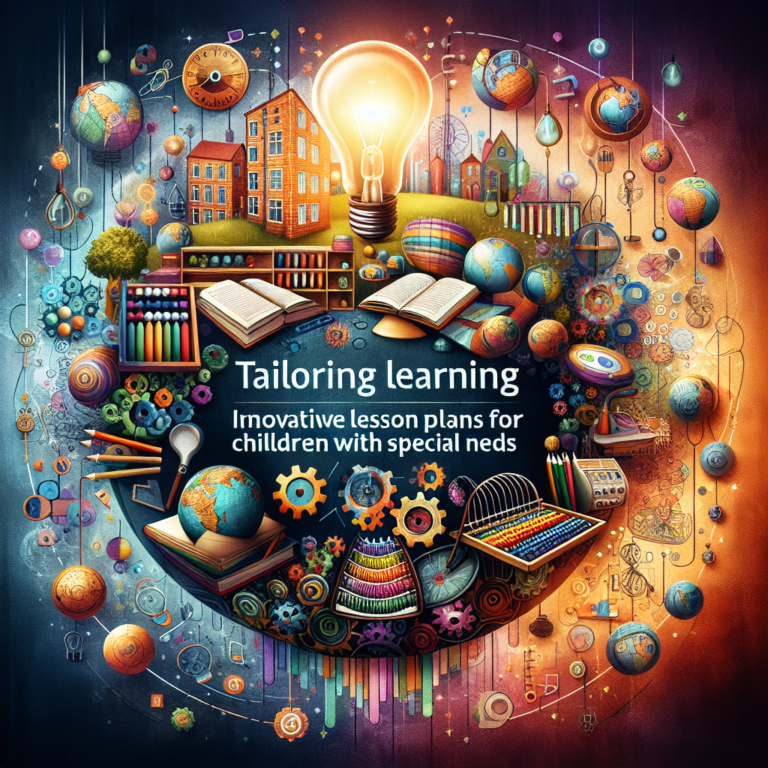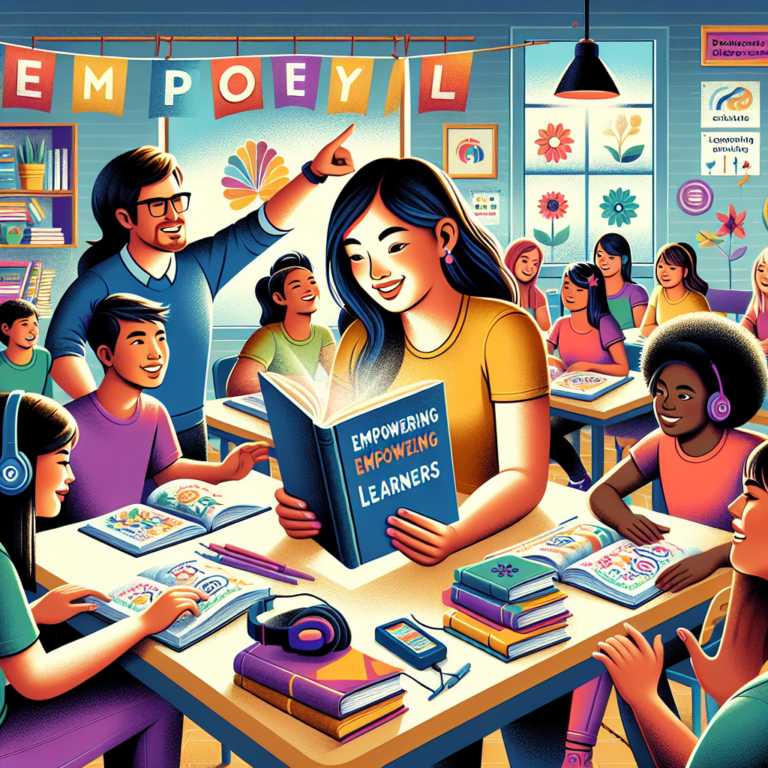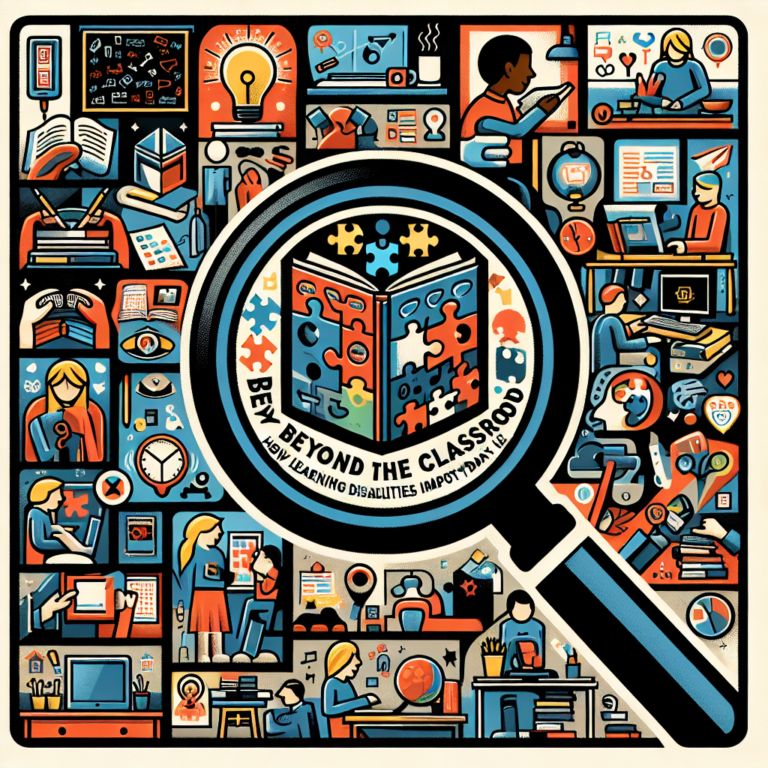
From Isolation to Inclusion: The Ultimate Transformative Impact of Learning Disability Support Groups
Introduction
In a world that often emphasizes the strength of community, those living with learning disabilities frequently find themselves on the fringes, grappling with feelings of isolation and misinterpretation. However, support groups dedicated to learning disabilities offer not only a safety net but also a powerful path from isolation to inclusion. The transformative impact of learning disability support groups is profound, providing individuals with the tools, resources, and community necessary to thrive. As we delve into this topic, we will discover how these groups play a pivotal role in enhancing self-esteem, encouraging social connections, and promoting greater acceptance, both personally and within broader societal structures.
Understanding Learning Disabilities
What Are Learning Disabilities?
Learning disabilities encompass a range of disorders that affect the ability to understand or use spoken or written language, perform mathematical calculations, coordinate movements, or direct attention. These challenges do not reflect an individual’s overall intelligence but rather how they process information. Examples include dyslexia, dyscalculia, and attention-deficit/hyperactivity disorder (ADHD).
The Nature of Isolation
Individuals with learning disabilities often experience isolation due to societal misconceptions and stigmas. They are at risk of being misunderstood or marginalized, leading to loneliness and a lack of belonging. Without appropriate support, their potential remains untapped, not because of a lack of ability but rather due to a lack of understanding and inclusion from society at large.
The Role of Learning Disability Support Groups
Building Community and Connection
Support groups function as safe havens where individuals can share their experiences and feelings without fear of judgment. They provide opportunities to connect with others who understand the challenges associated with learning disabilities, creating a sense of belonging that is often missing in other areas of life.
Case Study: The Reading Connection
The Reading Connection is a support group that focuses on helping individuals with dyslexia. They organize monthly meetings where participants can share their struggles and victories. Participants report feeling less isolated and more empowered, illustrating the significance of community in the journey from isolation to inclusion.
Providing Resources and Tools
Support groups offer invaluable resources, from informational materials to workshops that equip individuals with strategies to manage their learning disabilities effectively. Through group collaboration, members learn about various coping techniques, available technologies, and educational rights, all of which are vital for personal development.
Table: Resources Provided by Support Groups
| Resource Type | Description |
|---|---|
| Educational Workshops | Sessions on learning techniques and coping strategies |
| Guest Speakers | Experts who provide insights into specific challenges |
| Networking Opportunities | Connections with professionals and peers |
| Informative Literature | Brochures and publications outlining rights and resources |
Empowering Families and Caregivers
A Holistic Approach
The impact of learning disability support groups reaches beyond the individual to embrace families and caregivers. These groups often include sessions specifically aimed at helping family members understand the challenges their loved ones face. This engagement not only benefits the individual with a learning disability but also strengthens family support systems.
Case Study: The Family Empowerment Project
The Family Empowerment Project offers workshops for families of children with learning disabilities. Participants report a higher understanding of their children’s challenges and increased confidence in advocating for their needs, demonstrating that support groups play a crucial role in fostering an inclusive environment at home and in the community.
Challenging Societal Stigmas
Advocacy and Awareness
Support groups not only serve individuals but also function as advocacy platforms pushing for greater awareness and understanding of learning disabilities. By hosting community events, awareness campaigns, and informational sessions, these groups challenge misconceptions, paving the way for a more inclusive society.
Case Study: Breaking Barriers Initiative
The Breaking Barriers Initiative focuses on reaching out to schools and workplaces to educate about learning disabilities. Their efforts have sparked dialogue, resulting in policy changes in several educational institutions, illustrating how advocacy through support groups can lead to systemic change.
The Psychological Benefits of Support Groups
Enhancing Well-Being and Self-Esteem
Participation in a support group can significantly improve emotional well-being. Individuals report increased self-esteem, reduced anxiety, and a more positive outlook on their futures. This psychological transformation is often a catalyst for greater participation in societal activities, marking a crucial transition from isolation to inclusion.
Table: Psychological Benefits of Support Groups
| Benefit | Description |
|---|---|
| Increased Self-Esteem | Participants gain confidence and self-acceptance |
| Reduced Anxiety | Sharing experiences can alleviate stress and fears |
| Sense of Belonging | Building connections fosters a sense of community |
Creating Inclusive Environments
Collaboration with Educational Institutions
Support groups play a critical role in influencing educational policies and practices. Collaborations between support groups and schools lead to tailored educational strategies that accommodate diverse learning needs.
Case Study: Learning Together Initiative
The Learning Together Initiative partners with local schools to develop programs specifically for students with learning disabilities. By providing training for teachers and resources for students, their work significantly improves academic experiences and social integration, highlighting the importance of inclusive education in transforming lives.
Conclusion
The journey from isolation to inclusion is remarkable and often begins within the supportive environment created by learning disability support groups. These groups not only empower individuals with learning disabilities but also reshape societal perceptions, demonstrating that with the right support, everyone can thrive. The transformative impact of learning disability support groups is evident in the lived experiences of so many, illustrating the essential nature of community, understanding, and advocacy. By coming together, we foster a world where everyone has the opportunity to shine.
Inspirational Takeaway
In building connections and sharing experiences, we create pathways to understanding and acceptance. The next time you encounter someone facing challenges associated with learning disabilities, consider how you can be a part of their support system, helping them transition from isolation to inclusion.
FAQs
1. What is a learning disability?
A learning disability is a neurological condition that affects an individual’s ability to process information, leading to difficulties in areas such as reading, writing, and math.
2. How can support groups help individuals with learning disabilities?
Support groups provide a sense of community, share resources, foster emotional well-being, and advocate for greater awareness and understanding in society.
3. Who can join a learning disability support group?
Support groups are often open to individuals with learning disabilities, family members, caregivers, and anyone looking to increase their understanding of these challenges.
4. How do support groups challenge societal stigma?
By raising awareness and educating communities about learning disabilities, support groups help dispel myths and promote understanding, leading to greater acceptance and inclusion.
5. What are some resources offered by support groups?
Common resources include educational workshops, networking opportunities, guest speakers, and literature that outlines individual rights and available support services.
The journey from isolation to inclusion is a shared responsibility, and with the insights and community support offered by learning disability support groups, we can envision a future where everyone belongs.















